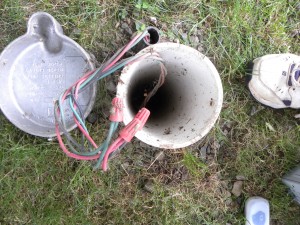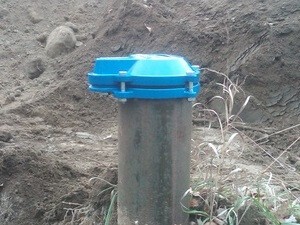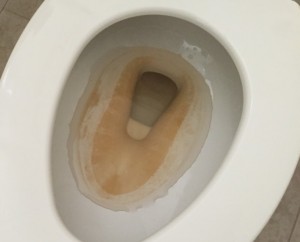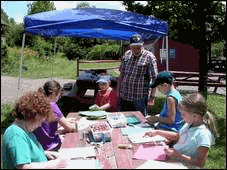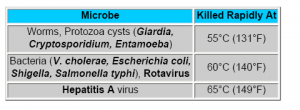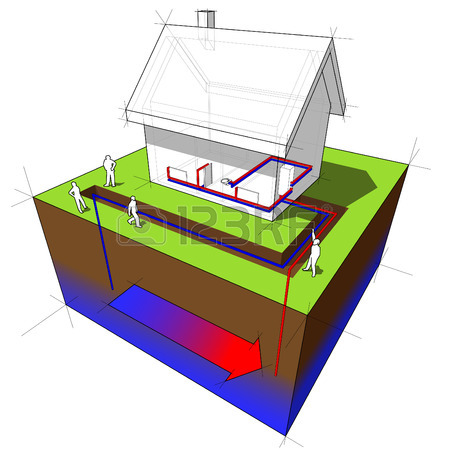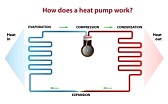Susquehanna Greenway Partnership River Towns Planner Position
Susquehanna Greenway Partnership is seeking a candidate for the position of River Towns Planner (RTP) to develop and implement programs that build the capacity of local partners to envision, plan, construct and sustain riverfront parks, walking and biking trails, river accesses, green infrastructure, and greenway signs. A minimum of a bachelor’s degree in Landscape Architecture or Community Design is required. Relevant experience in community engagement strategies, community assessments, conceptual renderings, landscape design, historic preservation, graphic design, and project management is needed.
The full position description is attached. Please share with anyone you think might be interested.
To submit an application, please email tcarothers@susquehannagreenway.org your cover letter, resume, and short writing samples. PLEASE PUT “River Towns Planner” IN THE SUBJECT OF YOUR MESSAGE.
Application Deadline: September 14, 2015
About the Susquehanna Greenway
The Susquehanna Greenway is a connected landscape of walking and biking trails, river access points, unique river towns, working farms and conserved land that stretches over 500-miles along the Susquehanna River. The Susquehanna Greenway improves the quality of life for the people who live near it, enhances the economic vitality of the communities that foster it, and preserves our natural and cultural resources. It provides opportunities to exercise outdoors, experience nature and explore historic river towns. The Greenway protects our water quality and inspires stewardship and civic pride in places where people love to live, work, play and visit.
Visit www.SusquehannaGreenway.org to learn more.
Online Training Courses
Stream Restoration – Course 1 of 6.
Wetland Science Course
Sustainability
Stormwater Harvesting
Regenerative Landscape Design
Natural Approach to Stormwater Management
Riverfest in Wilkes Barre
Great Event – No Dragon Boats Yet – but a great opportunity to get the kids educated about water and earth science. This year we had rocks and minerals with samples of lava, quartz, fools gold, uncut sapphire, amethyst, coral, pyrite on Marcellus Shale, anthracite coal, and peacock coal.
Again Nice event
http://www.pacleanwater.org
Big Bass Lake Presentation on Well Water Poconos Monroe Wayne County Pennsylvania
The Keystone Clean Water Team was invited to Big Bass Lake to discuss groundwater and private well issues with the Association. Great event and a beautiful community in the Poconos in Gouldsboro, Pennsylvania. The presenter was board member and manager Mr. Brian Oram from B.F. Environmental Consultants, Inc. During the presentation, we discussed:
a. Need for private well owners to be proactive.
b. The connection between groundwater and surface water.
c. Private well water testing – common problems and basic solutions.
d. The real hazards in a community may include other private wells.
e. Introduced the Know Your H2O? Program
Very solid Event. A Private Well Owner Presentation is available for review.
Supportive Links
Our Educational Booklet on Drinking Water
Know Your H2O? Program
OuR PSAs on Water
Why Should I Test My Well Water?
Mail Order Water Testing Program
Get Your Community Hazard Report for Real Estate Properties (USA Search- Custom Reports).
Most Common Questions
1. How to Shock Disinfect a Well?
2. Where do I get sanitizing tablets? (Follow link or check with local well drilling contractor)
[amazon_link asins=’B00L9FFQRW’ template=’ProductAd’ store=’webdespro-20′ marketplace=’US’ link_id=’8f2e2b71-bd15-11e7-aecf-87f1297ec902′]
3. Is radon in water an issue? Maybe – get more information, but first priority is to get the radon level check and run a long-term radon test. Radon by zip code (PA).
4. Red water – is the only solution a water softener?
5. My water is great but it turns blue and tastes metallic?
6. My water stinks. What is up?
7. I have a bacteria problem – do i need to install a UV system and spend $ 1500.00. Maybe- but first you should do the following:
a. Inspect the wellhead or top of the well – Is the casing above grade or below. If below grade, it would be advisable to hirer a well drilling contract to extend the casing at least 18 inches above grade.
b. Does water sit near the wellhead? – if so – divert the water.
c. Do you have a sanitary well cap? No sure – this is a sanitary well cap. Do you have one? If not install one.
d. Shock disinfect well and distribution system – see link above with video.
e. Retest – you may need to shock disinfect twice. Example – See Case # 3
Interested in a Community Based Educational Water Testing program for Big Bass Lake – Contact us.
We could use your help – Here is How.
Big Bass Lake Community Association is not just another Pocono Mountain Resort. We are an award winning and Gold Star Certified premier Community located in the Pocono Mountains.
Carbon County Pennsylvania Groundwater Help to Hometown
The Keystone Clean Water Team has its roots in Carbon County, Pennsylvania. The organization is attempting to educate and inform private well owners about issues related to water quality. We were just recently contacted by someone in the Hometown Area that was having a problem. He called and discussed the issues which appeared series. we asked the person to email us with the details = but we have not received the information.
So – We decided to post this message !
1. If you called the Keystone Clean Water Team looking for help and spoke with Brian – please email us a cleanwater@carbonwaters.org. Please provide a full description of the problem and type of information you have available and your street mailing address.
2. If you are having a problem with your well water in Carbon County, PA- please provide us a description of the problem and your mailing address.
3. We do not have the funds to fix any problems, but we do have the opportunity to compile the problems and attempt to compare the problems to known historic environmental hazards in the area.
4. If you are outside of Carbon County, PA and are having a problem – we would be happy to review any data, but we would also suggest running a Neighborhood Environmental Hazard Report.
Everything we do began with an idea.
Keystone Clean Water Team is a 501(c)(3) IRS approved nonprofit, volunteer organization and your donation is tax deductible to the extent allowed by law. Unsolicited donations are appreciated (Helps us complete our mission), but we also do local educational workshops and local cellphone/small electronic recycling programs. If you would like to set up a program to help recycle cellphones at an event, business, or other organization. Through our program we can recycle cell phones, iPods, game systems, and small digital cameras. If your interested, please contact us. Our new PSAs.
Help the Organization and Get Your Water Tested or Order the Private Well Owner Guide (proceeds benefit This Organization). Water Science Basics!
For more information, please go to KCWT’s About Page or contact us. Follow us on Twitter
Nationwide Program – Neighborhood Environmental Report Your Home Health Status
Nationwide Program – The Keystone Clean Water Team is in pre-launch for a new USA program to help homeowners. The program helps you to identify the existing and historic environmental hazards in your community. We are working with a national environmental database search company to offer a report to help you understand your home’s or your future homes environmental health status within a community. We are doing this by taking a snapshot of the current and historic environmental concerns and hazards in the community and a review of select criminal activity. This program has been lauched – order a Neighboorhood Hazard Reports.
The program, Neighborhood Environmental Report™, offers a search of over 1,400 databases and millions of records of potential land and groundwater contamination within 1 mile radius of the entered address. The report includes a search for concerns that might be dangerous to a homeowner’s family or investment such as nearby leaking underground oil tanks, leaky underground fuel tanks (LUSTs), leaky above ground tanks (LASTs), CDC Health Assessment Database, landfills, hazardous waste sites, DOD facilities, gas and radiological sources, National Wetland Mapping, Flooding mapping data, drug houses, and clandestine drug labs.
Healthy Communities = Healthy Kids and Families
Some of the most toxic and/or costly hazards exists outside of your home. These contaminants can enter your home through direct human or animal contract or vapor intrusion into your home through the air, soil, or groundwater. These hazards pose a threat to you and your family’s health and the value of your property. Every report includes detailed information about what has been searched and identified as well as contact information for all governmental and private organizations cited in the databases.
The benefits of this report:
1. Help existing homeowners understand the hazards in their communities.
2. Aid future homeowners quickly learn about the historic hazards and concerns to conduct prior water quality, soils, or environmental testing and get the proper inspections.
3. Aid real estate professionals, investors, and appraisers evaluate the value of a home or residential property.
4. If you are selling your home, what a great way to introduce your home and surrounding community to any potential buyers, and as a home buyer, the Neighborhood Environmental Report helps provide peace of mind for you and your family.
5. For environmental groups, this is a great way to educate and inform your community about existing environmental hazards, develop local targeted sub-watershed monitoring programs, and educate children about their communities. In some cases a larger search area is needed.
6. Home inspectors, environmental laboratories, and other may find the reports useful, but in many cases some additional review or interpretation will be needed to select the appropriate testing parameters, inspections, and monitoring.
(Example Report Dallas Pennsylvania)
We ran this report for a small business owner that was looking to purchase a residential property in Shavertown, PA. The property was going to be purchased for cash. We completed the search and search identified a specific potential problem with a past but active leak at a gasoline station. This lead the buyer to ask for more information. When the right questions were asked, it was determined that there may be some environmental hazards that could impact the value of the property. In addition, the preliminary search suggested that the property could be located in a floodplain. The quote from the buyer – “The preliminary information and educational materials allowed me to better understand my risk and allow me to find a new property in a timely manner and save over $ 200,000.00” (GW, Shavertown, PA, 2015).
During the period from 2010 to 2011 – the following are the states with the most “Meth Lab” busts: Missouri, Tennessee , Indiana , Kentucky, Oklahoma, Illinois, Iowa, Michigan, North Carolina, and South Carolina.
We are in pre-launch on this service. During pre-launch we are offering to complete compile this report for a fee of only $ 55.00. After pre-launch and website design, we think the final cost will be $ 75 and up. Neighboorhood Hazard Reports
2. Contact Mr. Brian Oram at the Keystone Clean Water Team (KCWT) at cleanwater@carbonwaters.org and provide the mailing address for the property, your contact information, email address, and phone number. We can provide this service for the USA. For some areas, we may need more information.
Terms and Conditions
1. Reports do not meet the terms and conditions of an environmental audit for real estate translations.
2. Reports can not be resold and the copyright will be maintained by the Keystone Clean Water Team.
3. Any analyses, estimates, ratings or risk codes provided in this Report are provided for illustrative purposes only, and are not intended to provide, nor should they be interpreted as providing any facts regarding, or prediction or forecast of, any environmental risk for any property. Only a Phase I Environmental Site Assessment performed by an environmental professional can provide information regarding the environmental risk for any property. This Report is not a replacement for a home inspection. This Report does not provide information pertaining to the interior of the target property such as, but not limited to: mold, asbestos, lead, radon or other issues. Additionally, the information provided in this Report is not to be construed as legal advice.
4. This report contains certain information described herein pertaining solely to the exterior of the target property, which information was obtained from a variety of public and other sources reasonably available to the database search company. The company. does not produce, maintain or verify the information contained in these sources; and assumes, without independent investigation, that the information in such sources is accurate and complete.
Everything we do began with an idea.
We have offered “Free” Assistance to this effort, but if you are a private well owner that needs assistance we are happy to help.
We realize your time is precious and the world is hectic. KCWT’s volunteers do only what they’re comfortable. It can be a little or a lot. Get YOUR WATER Tested – Discounted Screening Tests, posting articles on social media, or assisting with a local event !
For more information, please go to KCWT’s About Page or contact us. Follow us on Twitter
Keystone Clean Water Team is a 501(c)(3) IRS approved nonprofit, volunteer organization and your donation is tax deductible to the extent allowed by law. Unsolicited donations are appreciated (Helps us complete our mission), but we also do local educational workshops and local cellphone/small electronic recycling programs. If you would like to set up a program to help recycle cellphones at an event, business, or other organization. Through our program we can recycle cell phones, iPods, game systems, and small digital cameras. If your interested, please contact us. Our new PSAs.
Help the Organization and Get Your Water Tested or Order the Private Well Owner Guide (proceeds benefit This Organization). Water Science Basics!
Solar Pasteurization System Low Tech Solutions for Third World Countries, Off the Grid and Camping
In the 1880s, Mr. Louis Pasteur identified bacteria and other waterborne diseases and he learned that at many of these organisms can be killed or inactivated by boiling the water. Other commonly used forms of disinfection includes ozone, chlorine, iodine, hydrogen peroxide, UV-Disinfection, ozone, and other chemical process. Even though many drink pasteurized milk – many do not realize that this process can be used as a low tech way to treat drinking water. Pasteurization occurs when the water is heated to only 160 F or 71 F.
This presentation was originally prepared as part of a a field training and education program to use low tech approaches to training young adults in developing solutions for water quality problems. The process uses water pasteurization to inactivate or kill biological organisms. This process provides an alternative to conventional disinfection methods for remote areas as an alternative to boiling, UV-Disinfection, Chlorination, Chemical treatment, or ozonation.
From the World Health Organization – “Diarrhea occurs world-wide and causes 4% of all deaths and 5% of health loss to disability. It is most commonly caused by gastrointestinal infections which kill around 2.2 million people globally each year, mostly children in developing countries. The use of water in hygiene is an important preventive measure but contaminated water is also an important cause of diarrhea. Cholera and dysentery cause severe, sometimes life threatening forms of diarrhea.”
Diarrhea is
1. Biochemical/ Chemical irritation of the gut.
2. There are 1.5 billion cases of diarrhea per year.
3. Approximately 2 million children die each year.
4. Waterborne disease can cause systematic collapse of the local or regional food web and facilitate cross-species infection.
5. Drinking contaminated water, improper sanitation practices, and improper management of wastes can facilitate disease.
Key measures to reduce the number of cases of diarrhea includes:
- Access to safe drinking water.
- Improved sanitation.
- Good personal and food hygiene.
- Health education about how infections spread.
Key measures to treat diarrhea include:
- Giving more fluids than usual, including oral rehydration salts solution, to prevent dehydration.
- Continue feeding.
- Consulting a health worker if there are signs of dehydration or other problems.
Our Presentation on Solar Pasteurization Process Water Treatment.
Educational Materials are Available from the Keystone Clean Water Team. The Keystone Clean Water Team is a 501c3 and donations are appreciated.
Everything we do began with an idea.
We have offered “Free” Assistance to this effort, but if you are a private well owner that needs assistance we are happy to help.
We realize your time is precious and the world is hectic. CCGG’s volunteers do only what they’re comfortable with. It can be a little or a lot. Get YOUR WATER Tested – Discounted Screening Tests !
For more information, please go to CCGG’s About Page or contact us. Follow us on Twitter
Keystone Clean Water Team is a 501(c)(3) IRS approved nonprofit, volunteer organization and your donation is tax deductible to the extent allowed by law. Unsolicited donations are appreciated (Helps us complete our mission), but we also do local educational workshops and local cellphone/small electronic recycling programs. If you would like to set up a program to help recycle cellphones at an event, business, or other organization. Through our program we can recycle cell phones, iPods, game systems, and small digital cameras. If your interested, please contact us. Our new PSAs.
Help the Organization and Get Your Water Tested or Tap Score Tapwater and Well Water Testing Program, and Order the Private Well Owner Guide (proceeds benefit This Organization). Water Science Basics!
On-going Fundraiser – Go Fund Me -Global Stream Water Monitoring Tools: A new online tool called the Water Quality Index Calculator is available from KnowYourH2O that can be used globally to provide a ‘grade’ for surface water quality as part of a watershed monitoring, surface water monitoring and assessment program, citizen science, lake monitoring, or source water assessment tool.
Groundwater Availability Analysis and Groundwater Quality Wayne County, Pennsylvania
The Wayne Tomorrow Action Committee invited the Keystone Clean Water Team to compile and develop a presentation on the general water quality, water availability, and some general recommendations related to groundwater resources in Wayne County, Pennsylvania. The Keystone Clean Water Team had Mr. Brian Oram, a local water quality expert and professional geologist, review the information and conduct the presentation for the Keystone Clean Water Team. During the education session, the members of the Wayne Tomorrow Action Committee and the Sustainability Committee for Wayne Tomorrow was present. A copy of the presentation Wayne County Planning for Our Future is available. For this training event, the following sponsors were recognized:
BF. Environmental Consultants
Water Research Center
Quantum Laboratories
Key Topics:
1. Private Wells are not regulated in Pennsylvania and there are NO minimum construction standards.
2. About 50% of private wells in Pennsylvania appear to have at least one water quality problem and causes the water to NOT meet the PADEP Drinking Water Standards.
3. Common problem is the pH of the water is low and the water is corrosive. Corrosive water can increase the concentration of trace metals like copper/lead/zinc (plumbing and fixtures) and iron/manganese/aluminum/arsenic (aquifer).4. From the USGS Study – 97 % of private wells have radon over 300 pCi/L, 6 Percent have elevated arsenic, well water with a pH of over 7.8 may be associated with the presence of methane, arsenic, fluoride, sodium, bromide, lithium, boron, and chloride. (Speaker note: Well water with a pH of 8.0 or more may be influenced by naturally occurring saline water).
5. Analysis – The County could consider using the GIS System to conduct Groundwater Vulnerability Analysis, Availability Analysis, and Identify the location of historic or current hazards of concern.
6. In general, Wayne County can use a basic water budgeting analysis to evaluate project sustainability and if possible promote the use of on-site well and septic system with proper installation and maintenance. The example demonstrated how projects could be analyzed to determine the estimated development capacity of a project based on water availability.
7. The Organization or County can not allocate water – this is the role of the Delaware River Basin Commission.
8. Wayne County is appears that 35 to 45 % of rainfall contributes to baseflow for the region.
9. Advisable to develop a County or Local Agency – Well Construction Standard.
10. Educational Materials are Available for PA from the Keystone Clean Water Team. The Keystone Clean Water Team is a 501c3 and donations are appreciated.
Everything we do began with an idea.
We have offered “Free” Assistance to this effort, but if you are a private well owner that needs assistance we are happy to help.
We realize your time is precious and the world is hectic. CCGG’s volunteers do only what they’re comfortable with. It can be a little or a lot. Get YOUR WATER Tested – Discounted Screening Tests !
For more information, please go to CCGG’s About Page or contact us. Follow us on Twitter
Keystone Clean Water Team is a 501(c)(3) IRS approved nonprofit, volunteer organization and your donation is tax deductible to the extent allowed by law. Unsolicited donations are appreciated (Helps us complete our mission), but we also do local educational workshops and local cellphone/small electronic recycling programs. If you would like to set up a program to help recycle cellphones at an event, business, or other organization. Through our program we can recycle cell phones, iPods, game systems, and small digital cameras. If your interested, please contact us. Our new PSAs.
Help the Organization and Get Your Water Tested or Order the Private Well Owner Guide (proceeds benefit This Organization). Water Science Basics!
Heating and Cooling from the Earth Engine
When people think of renewable energy, their first thought is typically solar power or wind energy. In Pennsylvania, the most natural and renewable energy system available to meet the heating and cooling needs for residential, commercial and recreational needs is a geothermal or a ground-source heating and cooling system. These systems come with a variety of configurations and a single system can heat or cool a home without natural gas, coal, oil or biomass. However, some electric is required to run the system.
This relatively obscure technology is robust, proven and available now to those willing to understand the simple beauty of these systems.
A geothermal system moves and stores energy rather than producing energy through combustion or resistance. Geothermal systems work by exchanging hot or cold air from the home with the stable stored energy in the ground, rather than by converting chemical energy to heat. This is a renewable energy system that is very efficient and has enough flexibility to fit a variety of applications. Some added benefit in addition efficiency is that geothermal energy creates no pollution to our air or water and other than electricity, they eliminate the need to purchase highly processed petrochemical fuel from less than environmentally conscious producers.
While the air temperature in Pennsylvania can vary from -20 degrees Fahrenheit in the coldest part of winter to over 100 degrees Fahrenheit in the summer, the Earth’s temperature a few feet under the surface is essentially the same in winter and summer. In the winter, the system can heat a home using the Earth’s relatively warm core energy. In the summer, the same system can cool the home with the Earth’s relatively cool mass. Year-round, geothermal systems can produce hot water. Geothermal heat pumps have an efficiency of over 300 to 500 percent (meaning they get a payback of 3 to 5 times the energy used to run the system). This efficiency provides the heating/cooling needs at a cost that is 30 to 70 percent less expensive than conventional energy systems, without combustion, carbon dioxide, methane, water pollution or the waste generated by other energy systems.
Geothermal ground-source heating and cooling systems work during the night when the sun is blocked by clouds and when the wind is not blowing. While electricity costs may vary, geothermal costs don’t fluctuate like natural firewood, gas, coal and heating oil. The ground-source system comes in a variety of configurations to easily fit new home construction or homes with a more conventional, existing duct-based heating and cooling systems.
The geothermal system has three main components: connection to the Earth, delivery and distribution system and a geothermal heat pump. The Earth connection allows the system to pull or store heat in the Earth. In heating mode, the system uses the Earth connection to pull a small quantity of heat from the Earth to heat a person’s space. In cooling mode, the system does the reverse and transfers heat from the air back to the Earth.
The distribution system can be a series of vertical connections or loops buried in the ground that transfer and help to distribute the energy. The geothermal heat pump is very efficient energy transfer system that moves the energy from the building to the transfer fluid.
The system does require an electrical source to run the heat pumps and circulation system and it is critical that an existing home have a formal energy audit done prior to installing a system. New construction should use green building and energy efficient insulating systems so the system can be properly sized. The Residential Energy-Efficient Property Credit provides a 30 percent tax credit toward the cost of alternative energy equipment installed on or in a home or business. With these credits, payback on installation is about 10 years+.
Pennsylvania residents could benefit from lower energy costs, elimination of water and air pollution and a significant reduction of the expensive and environmentally destructive infrastructure of fossil fuels by adapting geothermal systems as soon as possible.
To learn more about geothermal energy, visit the Keystone Clean Water Team at CarbonWaters.org or Duane Moyer Well Drilling at MoyerWellDrilling.com.
Article published in the April Addition of Natural Awakenings Magazine
We exist to promote Natural Living in the communities that we serve. Visit HealthyLehighValley.com for online news, events, articles, archives, resources, contests and more information. To sign-up for our newsletter simply reply to this email.
Everything we do began with an idea.
We have offered “Free” Assistance to this effort, but if you are a private well owner that needs assistance we are happy to help.
We realize your time is precious and the world is hectic. CCGG’s volunteers do only what they’re comfortable with. It can be a little or a lot. Get YOUR WATER Tested – Discounted Screening Tests !
For more information, please go to CCGG’s About Page or contact us. Follow us on Twitter
Keystone Clean Water Team is a 501(c)(3) IRS approved nonprofit, volunteer organization and your donation is tax deductible to the extent allowed by law. Unsolicited donations are appreciated (Helps us complete our mission), but we also do local educational workshops and local cellphone/small electronic recycling programs. If you would like to set up a program to help recycle cellphones at an event, business, or other organization. Through our program we can recycle cell phones, iPods, game systems, and small digital cameras. If your interested, please contact us. Our new PSAs.
Help the Organization and Get Your Water Tested or Order the Private Well Owner Guide (proceeds benefit This Organization). Water Science Basics!
Participated in Jessup Panel Discussion on Invenergy
Participated in a Panel Discussion at the request of Representative Frank Farina – I have not worked on the Invenergy Project and I was requested to be available to answer questions related to geology, hydrogeology, water quality, regulatory process, environmental impacts, stormwater issues, and stream related matters. Prior to attending the event, I visited the site and reviewed the available soils, geologic, and water quality data. I attended the panel discussion with Q/A – a link to a series can be found at the following webportal. I strongly suggest you watch video 6.
During the Panel discussion the following questions were raised
1. How are discharge limits sets? The PADEP set the discharge limits for a facility based on the average and peak discharge flow, existing stream quality, existing stream flow, classification of the stream, and the nature of downgradient users.
2. Have the discharge limits been set? No -the discharge limits have not been set for the stream and the peak flow is 600,000 gpd and a potential average flow is 400,000 gpd.
3. Will the discharge adversely impact the stream? The process the PADEP uses is designed to have no adverse impact on the stream. The PADEP will set discharge limits to prevent and adverse impact on the stream or no impact on the stream depending on the stream quality and classification. For this project, a critical design parameter will be temperature and most likely the design of the outlet structure.
4. What chemicals will be used in the water treatment process? This can not be known until the PADEP sets the limits. The PADEP has a list of allowed chemicals that could be used and are pre-approved. The list is here. Note: This is a list of all the chemicals PADEP has approved for a variety of processes and projects and NOT This Project. This list is not project or site specific.
5. Is it possible that PADEP may set limits that are not attainable? This should not happen, but it may.
6. Limits are set via a NPDES permit process? This process will likely require daily monitoring of the treatment process (incoming water, within process, discharge water) – Certified water testing on a monthly basis – continuous flow monitoring and most likely consist monitoring of pH, temperature, conductivity, and oxygen. The monitoring program will likely include upstream and downstream monitoring of water quality and maybe flow.
7. Water Withdrawal ? Is there enough water ? It appears that the water company has been allocated sufficient water for the area. The allocation process is controlled by the SRBC (Susquehanna River Basin Commission). They regulate the initial water allocation, create a docket, and would have to approve any docket modifications. This may be a docket modification by the SRBC. This would be an excellent time to put in-place in-stream water quality monitoring for the watershed. It was suggested that in-stream monitoring with a web-portal to access daily was being considered.
8. In a drought what happens? SRBC controls allocation via the docket – plant would have to apply to provisions. If this means going off line to meet requirements – this is what would have to happen. The plant could attempt to develop some backup or supplemental sources.
9. Geology for the area ? Any issues ? There does appear to be some historic strip mining and soil mapping suggests some urban dumping. The bedrock is typical of the Llewellyn Formation (coal bearing formation) and the Pottsville Formation (sandstone). The area has no mapped sinkholes, faults, or known geologic hazards.
Video of the Event (20 separate videos – please watch Number 6)
https://www.youtube.com/watch?list=PLKfoQ6aX-A06NVXkLsZ4sbjRNSgCm9ogO&v=1CVr-Gvpenw
News Coverage
http://thetimes-tribune.com/news/business/jessup-power-plant-plan-latest-since-shale-boom-began-1.1532435
http://wnep.com/2015/03/31/action-16-is-invenergy-a-good-neighbor/
In Video 6 – I had to interpret a question because what the person was doing was not asking a question but making a statement that was not true and correct. For the record,
1. I have never sponsored an oil and gas energy event.
2. I have never sponsored an energy event dinner.
3. I did not attend the event in question, but I did get a free invitation to the event because I subscribe to an online newsletter about environmental and oil and gas issues through out the US. This free invitation was to the event only and I would have to pay for lunch. I did register, but I did not attend the event.
4. Rather than attending the event, I helped the DCNR with a program that was scheduled for the Tues before and Thursday after on environmental issues with natural gas development, but because a tour for a drilling site could not be set-up we did a tour and water testing of a salt water spring in Susquehanna County, PA.
5. As a fallout of the tour- we are in the process of raising funds to help purchase 3-Phosphate testing meters for the DCNR Program – estimated cost $ 2000.00. Send donations via this portal. The next $ 2K raised will go to buying the water quality meters.
Added Link to Article I found from Charlie Charlesworth on the event.
Everything we do began with an idea.
We have offered “Free” Assistance to this effort, but if you are a private well owner that needs assistance we are happy to help.
We realize your time is precious and the world is hectic. CCGG’s volunteers do only what they’re comfortable with. It can be a little or a lot. Get YOUR WATER Tested – Discounted Screening Tests !
For more information, please go to CCGG’s About Page or contact us. Follow us on Twitter
Keystone Clean Water Team is a 501(c)(3) IRS approved nonprofit, volunteer organization and your donation is tax deductible to the extent allowed by law. Unsolicited donations are appreciated (Helps us complete our mission), but we also do local educational workshops and local cellphone/small electronic recycling programs. If you would like to set up a program to help recycle cellphones at an event, business, or other organization. Through our program we can recycle cell phones, iPods, game systems, and small digital cameras. If your interested, please contact us. Our new PSAs.
Help the Organization and Get Your Water Tested or Order the Private Well Owner Guide (proceeds benefit This Organization). Water Science Basics!

